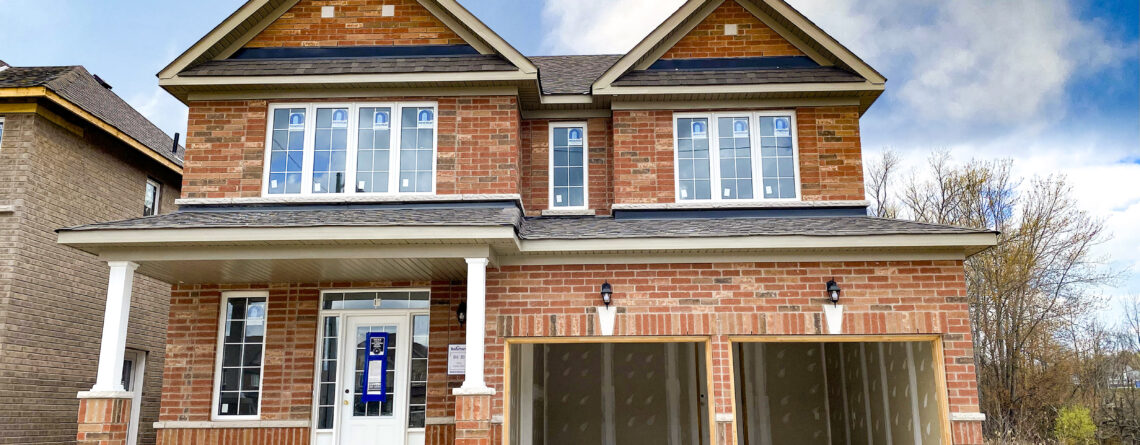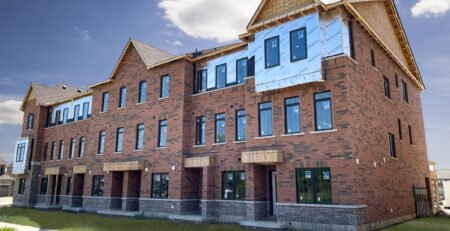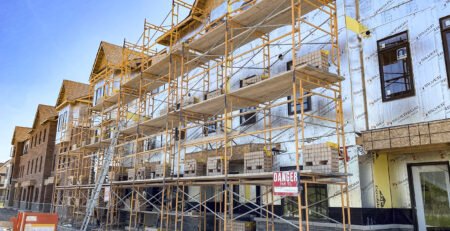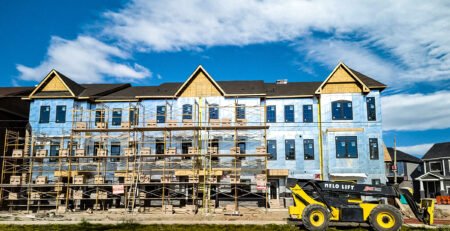Seasonal Maintenance Checklist for Masonry Structures
Though masonry structures are safe and robust to live in, even then they are not deprived of the evil effect of the various seasons. Changing climate leaves a great impact on your masonry walls and becomes a reason for the deterioration of your brick or concrete structure.
Therefore, it’s important to have a seasonal maintenance checklist, so that you can protect your building from the nasty effects of the season. Constructing your property with the help of Masonry Contractors Toronto can give you relief from these seasonal maintenance checklists. Because their created structures remain free from any type of seasonal effects and stay protected for a long time.
However, seasonal maintenance checklists are vital for any masonry structures. This checklist and regular inspection ensures that your building is free from any kind of external or internal issues.
What To Check In Order To Keep Your Masonry Maintained?
A checklist is an essential to keep your structure protected. Getting inspected at regular intervals can help your building stay strong for a long period. Let’s see how preparing a checklist is helpful in maintaining your masonry structure and at what intervals you should keep checking for a better masonry maintenance routine.
- Check for Efflorescence
The climate is one of the main reasons behind the occurrence of efflorescence on the masonry wall. Efflorescence generally occurs due to the evaporation of the water and the settling down of the salt at the surface of the wall.
However, dealing with efflorescence is easy, just with the help of a stiff brush you can get rid of it, but if left untreated it can create major issues. So it’s good to resolve the problem on time.
To treat efflorescence use solutions specially manufactured to remove efflorescence from the brick. Inappropriate acid cleaning practices may cause additional staining, etched mortar joints and raise moisture penetration in brickwork.
- Check For The Mortar Deterioration
One of the main reasons behind the collapse of the building is deteriorated mortar. Due to bad mortar, the joints between the two bricks get weak which affects the stability of the structure.
This problem needs special treatment, so call the best masonry contracting Toronto and get your job done. It’s good to find this problem before the time. Mortar is critical to the stability of your building.
Climate has a great impact on your building’s mortar. Due to seasonal variation, mortar starts to deteriorate. To protect the mortar from deterioration, it’s best to inspect it regularly. Repointing is the process through which you can resolve this problem. In repointing, we generally remove the damaged or deteriorated mortar to a uniform depth and fill new mortar in the joints. Also, you can apply these simple ways to protect masonry from cracking.
- Check For The Plant Development
Growing plants on the masonry wall is not a good sign for the stability and strength of your structure. This problem is common in the rainy season, especially in the old structures. If their roots find their way deep into your masonry wall, it can create a big problem for you. Therefore, it is a good idea to remove the plants before they get too big.
Plant growth is also responsible for the penetration of moisture into the masonry. Ivy shoots, commonly referred to as “suckers”, can penetrate mortar voids and may transport moisture into those voids. In such cases, ivy may need to be removed.
- Check For The Brick Replacement
Due to heavy snowfall and rain bricks lose their strength and don’t remain the same as they were in their initial period. So, it becomes important to replace the bricks when they deteriorate.
Moisture easily penetrates through the cracks of the walls and gets deep inside it which results in the weakening of the wall. To handle moisture penetration cases, it’s essential to replace or repair the bricks.
The mortar that covers the damaged units should be carefully removed to prevent damage to the surrounding brickwork. Once the units have been removed, all mortar surrounding the unit should be finely chiselled, and all debris and dust should be removed with a brush.
It’s good to not perform this task on your own. Hire Masonry Contractors Toronto for such problems, because they can perform these tasks safely and effectively.
- Check For Wall Coating
Especially rainy seasons prove to be harmful to your masonry wall coating. The humidity conditions in this season make the coating more prone to wear and tear. The coating is coated to the masonry walls to protect them from external disturbance. For instance, certain coatings can help limit the amount of water that goes into barrier walls and masonry exposed to extreme conditions like chimneys, parapets, copings, and sills.
- Check For The Sealant Replacement
Sealant is usually a substance that is used to obstruct the passage of fluid through the opening in the masonry. It’s basically a type of mechanical seal. Moisture penetration can also be caused by missing or damaged sealants in and around brickwork, as well as in windows, door frames, and expansion joints.
- Check For The Opening Weeps
It is important to inspect the weeps to make sure that they are properly open and positioned in such a way that the moisture within the walls can leak out to the outside. If they are clogged, then clean them with a stiff wire or thin dowel. If your weeps weren’t spaced correctly, you might need to drill new weeps.
There are also many more essential points that you could add to your masonry’s seasonal maintenance checklist. Let’s see those:
- Masonry unit: size, color, grade, texture, type, strength
- Dampproofing and moisture barrier
- Flashing system
- Mortar joint types, size, alignment of the head joints
- Cleaning procedure
Conclusion
To keep your masonry structure free from the evil effects of changing seasons, you will have to check all these issues after an interval. In this work, a seasonal maintenance checklist can better help you. You can also hire a masonry expert for all these checkups. For any queries, Call Masonry Group at +1 (416) 500-2228 or write to us at info@masonrygroup.com and we’ll shortly join you.











